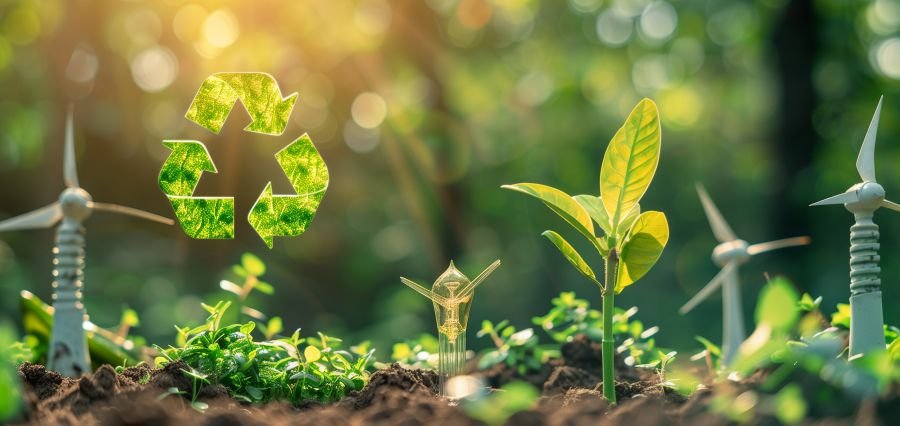Green Revolution 2.0
Delhi, the bustling capital of India, is witnessing a remarkable transformation in its agricultural sector. A new wave of sustainable businesses is spearheading what many are calling “Green Revolution 2.0,” a movement that promises to reshape the region’s farming practices and food systems. This revolution is characterized by the integration of cutting-edge technologies, environmentally-conscious practices, and a steadfast commitment to long-term sustainability.
The Catalyst for Change
The impetus for this transformation comes from a perfect storm of factors. On one hand, the Indian government has implemented policies and initiatives aimed at promoting sustainable agriculture. On the other, a burgeoning ecosystem of innovative agri-tech startups is bringing fresh ideas and solutions to age-old farming challenges. Together, these forces are laying the foundation for a more eco-friendly and resilient agricultural system in Delhi and its surrounding areas.
Addressing Water Scarcity
One of the most pressing issues facing Delhi’s agricultural sector is water scarcity. The region’s over-reliance on water-intensive crops, particularly paddy, has led to a rapid depletion of groundwater resources. In response, Green Revolution 2.0 is placing a strong emphasis on promoting less water-intensive crops such as pulses, oilseeds, and vegetables.
This shift is not just about crop selection, however. Sustainable businesses are deploying an array of precision agriculture technologies to help farmers optimize water usage. Satellite imagery, IoT sensors, and sophisticated data analytics tools are being harnessed to provide real-time insights into soil moisture levels, weather patterns, and crop health. Armed with this information, farmers can make informed decisions about irrigation, significantly reducing water waste while maintaining or even improving crop yields.
Precision Agriculture: Beyond Water Management
The benefits of precision agriculture extend far beyond water conservation. These technologies are enabling farmers to fine-tune every aspect of their operations, from fertilizer application to pest management. By applying inputs more precisely and only where needed, farmers can significantly reduce their environmental impact while also cutting costs and improving productivity.
For instance, drone-based imaging systems can detect early signs of pest infestations or nutrient deficiencies, allowing for targeted interventions before problems escalate. Meanwhile, AI-powered predictive models are helping farmers anticipate weather-related risks and adjust their planting and harvesting schedules accordingly.
Enhancing Food Safety and Traceability
In an era of increasing consumer awareness and concern about food safety, Delhi’s sustainable businesses are stepping up to the plate. Many are exploring innovative solutions to enhance traceability across the entire agricultural supply chain. Blockchain technology is emerging as a powerful tool in this regard, enabling the creation of transparent and immutable records of a product’s journey from farm to consumer.
This level of transparency not only boosts consumer confidence but also promotes responsible consumption. Consumers can make more informed choices about the food they buy, while farmers and other stakeholders in the supply chain are incentivized to adhere to best practices in food safety and sustainability.
Embracing Organic Farming and Renewable Energy
Technology is not the only focus of Green Revolution 2.0. Many sustainable businesses in Delhi are championing environmentally-friendly practices such as organic farming. By eschewing synthetic pesticides and fertilizers in favor of natural alternatives, these enterprises are helping to restore soil health, promote biodiversity, and produce healthier food.
Additionally, there’s a growing trend towards the use of renewable energy in agricultural operations. Solar-powered irrigation systems, for example, are becoming increasingly common, reducing the sector’s reliance on fossil fuels and helping to mitigate its carbon footprint.
These efforts are not just good for the environment; they’re also good for business. As consumers become more environmentally conscious, sustainable and organic products are commanding premium prices in the market. For Delhi’s forward-thinking agricultural businesses, sustainability is becoming a key differentiator and a source of competitive advantage.
The Rise of Agri-Tech Startups
At the heart of Delhi’s Green Revolution 2.0 is a thriving ecosystem of agri-tech startups. These innovative enterprises are driving disruption across the agricultural value chain, developing solutions that range from AI-powered crop management systems to digital marketplaces that connect farmers directly with consumers.
Many of these startups are focused on empowering smallholder farmers, who make up the majority of India’s agricultural workforce. By providing access to advanced technologies and market insights that were once the preserve of large industrial farms, these startups are helping to level the playing field and improve livelihoods in rural communities.
The Power of Collaboration
The success of Green Revolution 2.0 in Delhi is not solely the result of individual business efforts. Collaboration and partnerships are playing a crucial role in driving the movement forward. Public-private partnerships, in particular, are proving to be a powerful catalyst for change.
One notable example is the Memorandum of Understanding (MoU) between the Indian Council of Agricultural Research (ICAR) and the National Bank of Agriculture and Rural Development (NABARD). This partnership is facilitating action research and the transfer of sustainable agricultural technologies to farmers, helping to bridge the gap between innovation and implementation.
Similarly, collaborations between agri-tech startups, established agricultural companies, and research institutions are fostering a culture of open innovation. This collaborative approach is accelerating the development and adoption of sustainable solutions, creating a multiplier effect that amplifies the impact of individual efforts.
Challenges and Future Outlook
While the progress of Green Revolution 2.0 in Delhi is promising, it’s not without challenges. Issues such as limited access to credit for small farmers, resistance to change in traditional farming communities, and the need for significant upfront investments in new technologies remain hurdles to be overcome.
However, the momentum behind the movement appears unstoppable. As climate change continues to pose threats to food security, the imperative for sustainable agriculture grows stronger. Delhi’s businesses, with their innovative approaches and commitment to sustainability, are well-positioned to lead the way in addressing these challenges.
Looking ahead, the future of agriculture in Delhi appears greener and more resilient. As sustainable practices become more widespread and technologies continue to evolve, we can expect to see further improvements in resource efficiency, productivity, and environmental stewardship.


